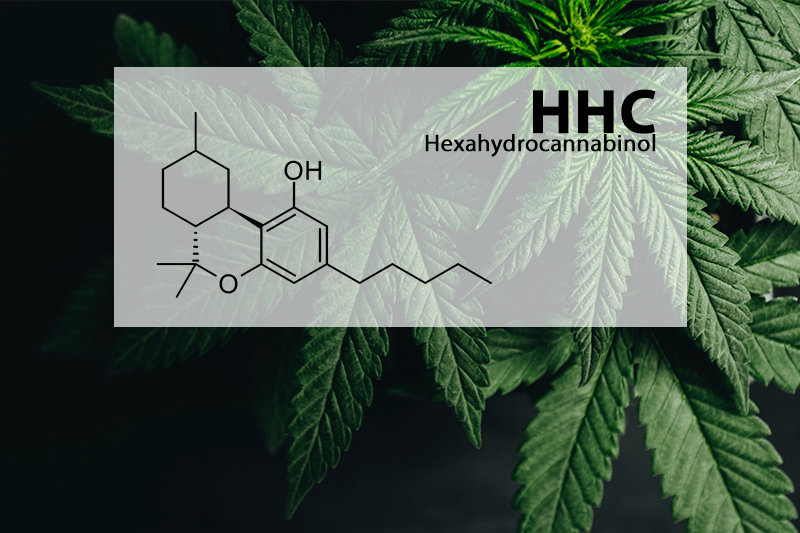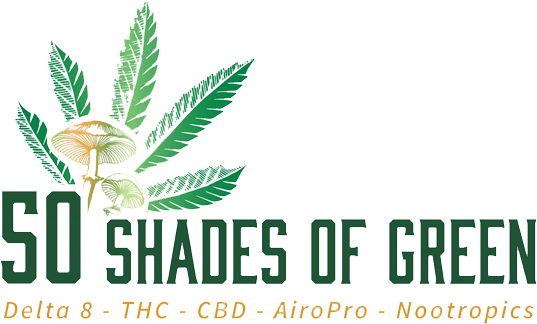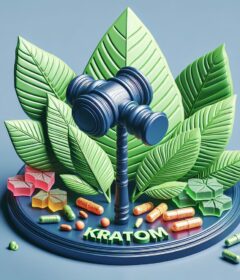HHCO Effect? HHC-O Gummies, HHC Carts.

HHCO effects, HHCO Gummies, and HHC-O Vape Carts. The hemp-derived cannabinoid has much potential but invites many questions, especially concerning drug testing.
Among the wave of hemp-derived cannabinoids sweeping the country—delta-8 THC, delta-O THC, and delta-10 THC—few have eluded public understanding more than hexahydrocannabinol, commonly known as HHC. Googling the compound brings up contradictory information about its legality, effects on the body, and whether it occurs naturally in the cannabis plant.
HHCO Effects vs. HHC
Hemp-derived hexahydrocannabinol, or HHC, isn’t THC but offers a THC-lite experience. HHCO gummies have recently appeared as a slightly more potent form that takes effect more quickly.
Making sense of HHC is complicated partly because it has only recently reached the market, and only a handful of retailers are selling it, mostly in vape carts. The cannabinoid offers lots of potential; don’t be surprised if you start hearing more about it soon.
As state and federal agencies continue to ban delta-8 THC, the most popular hemp-derived cannabinoid, HHC offers a bit more legal promise—and appeal—since it’s not a THC compound. It may also elude drug tests, although the evidence for that is purely anecdotal.
“HHC is one of our fastest-growing products,” according to Good CBD, one of the main retailers of the cannabinoid. “That’s due to regulations that have banned Delta-8, but people are buying it in states where they can buy Delta-8, too.” Hexahydrocannabinol cannabinoid seems to be an emerging favorite amongst the hemp crowd.
Read on to learn more about HHCO effects: how it’s made, its effects, its murky legality, and what other questions remain.
What is HHC?
HHC was first created in 1944 by the American chemist Roger Adams when he added hydrogen molecules to Delta-9 THC. This process, known as hydrogenation, converts THC to hexahydrocannabinol (HHC).
Hydrogenation isn’t limited to cannabinoid production. A similar process is used to convert vegetable oil to margarine.
While Adams created HHC from conventional cannabis-derived THC, these days, the cannabinoid is typically derived through a process that begins with hemp, the low-THC cannabis plant that was made federally legal by Congress in the 2018 farm bill.
How is it made & different than HHCO?
It’s a many-step process. First, CBD is extracted from raw hemp, distilled, and isolated in a powder form. From there, things get a little more complicated.
Hemp-derived CBD acts as the base for the chemical reaction that creates HHC.
HHC manufacturing is described as a proprietary process inside a chemical reactor. “Think about the reactor as a black box,” one manufacturer told Leafly. “In goes CBD, out comes HHC.”
HHC is described as a “gold, dark oil that we refine from that stage” before distilling it.
HHCO gummies and products are an acetate form of the cannabinoid, similar to THC-O, but not scheduled. HHCO effects are becoming a favorite for those without access to Delta-8 gummies and other products.
Is it safe to make HHC?
Richard Sams, scientific director at KCA Laboratories in Nicholasville, Kentucky, has tested HHC products in the past few months (including, incidentally, Good CBD’s). He told Leafly HHC can be produced safely in a well-equipped laboratory. But if you scale up production, he said, the risks rise, too. “The potential risk here is with explosions,” he explained.
Some companies only make hexahydrocannabinol in an “explosion-proof” space. “Everything’s grounded,” they said. “There’s no potential for static discharge.”
What are the effects of HHCO & HHC on the body and mind?
There is a lack of consensus around HHC’s potency. The complication arises, in part, from the fact that when the cannabinoid is manufactured, the end result is a mixture of two different kinds of HHC molecules: 9R HHC actively binds to the body’s natural endocannabinoid receptors, while 9S HHC, because of its slightly different molecular structure, doesn’t do so nearly as well.
“The one that fits [into the receptors] produces similar effects” as delta-8 THC but takes a much higher amount to do so, according to HHC lab producers. “With a sufficient dose, THC-like effects can be observed.”
In other words, HHC can have THC-like effects on the body and mind, but HHC is less potent, milligram-per-milligram, than delta-8 THC. Delta-8 THC is about half as potent as the standard delta-9 THC.
What’s the Potency?
While the ratios of the active and inactive hexahydrocannabinol molecules can vary from batch to batch, they need to be at least 50% active to pass muster.
I tried it: HHC offered a pleasant and mildly cerebral high with some pain relief.
“Trying to get those two isolated and separated from each other would be so cost-ineffective that it wouldn’t make a viable product,” he explained. “So our goal, when we’re making our HHC, is always to maximize the amount of the active [compound] and minimize the amount of the less active [compound]. However, it’s never a perfect gambit. It’s usually somewhere around 2:1 or 1:1.”
When it comes to the effects of HHC(hexahydrocannabinol), one consumer of Good CBD, is a true believer.
“Personally, with hexahydrocannabinol, I feel energetic,” he said. “I go to the gym. I’m sharp, and my brain’s working properly. I typically have back and shoulder pain, but I have no pain when on it.”
Aside from a faintly plastic-y taste, my experience with the company’s HHC vape carts was similarly pleasant. Although the Blue Dream cart didn’t give me the same energy boost, it offered a pleasant and mildly cerebral high, and it did soothe my aching muscles, too.
HHC and Drug Tests
Many vendors believe that some of HHC’s and HHCO’s appeal stems from evidence suggesting it can evade drug tests. But—and this is important—he acknowledges the evidence is only anecdotal. This is just what he’s hearing from his customers. Hexahydrocannabinol also has a phenomenal shelf-life compared to traditional THC products.
James Stephens, vice president of innovation at Creo, a biotech firm specializing in cannabinoids, has seen similar arguments made about HHC. “I’ve also seen it advertised that [HHC] doesn’t convert into 11-hydroxy-THC, a common drug test metabolite,” he told Leafly. “It could possibly be used to evade drug testing regimes if this proves true,” he added.
Word to the wise: There is no hard evidence that HHC does not show up on a drug test for marijuana. Don’t bet your job or career on anecdotal evidence.
Is Hexahydrocannabinol safe to consume?
Like any new hemp-derived cannabinoid, there is no standard dose and little to no research on ingestion’s immediate or long-term effects. This is true for the emerging, more potent form known as HHC-O Acetate. HHCO effects are similar. However, some consumers report a faster onset and stronger potency.
Because hemp-derived cannabinoids (including HHC) are not subject to cannabis regulations in legal adult-use states, HHC product makers and retailers are not required to test their products for potency and purity.
Good CBD, however, does include third-party testing results with their HHC products from KCA Laboratories. Those tests show the vape carts to contain about 99% HHC. (Strangely, the ratio of 9R and 9S hexahydrocannabinol molecules in the test added up to a tad more than 100%. Colorado Chromatography attributed that to slight deviations within the margin of error).
Injoy Extracts, another major retailer of HHC, also stressed the importance of third-party lab testing results and certificate of authenticity or COA.
Legality of HHCO & HHC Carts, Gummies
And now, we arrive at perhaps the thorniest question: Is HHC legal? Do any states list hexahydrocannabinol as illegal?
Good CBD, a premium vendor with 50 Shades of Green CBD lotion and CBD topicals, says yes. The company’s website argues that they should be in the clear since HHC is hemp-derived and not actually THC. “HHC vapes, gummies, or edibles are perfectly legal on the federal level and will most likely remain legal on the state level,” the website reads. They are not alone, as all major retailers who are well known have shifted to HHC cannabinoid products due to HHC potency, shelf life, and consumer demand for HHC gummies, HHC vape carts, and now, HHC-O Acetate. HHCO effects are still observed in this new form, with many consumers in favor.
Company officials additionally argue that since HHC is found in the seeds and pollen of hemp plants, it is “non-synthetic” and thus a “perfectly federally legal hemp extraction.”
Skeptics Argue Theoretics
Other retailers, unsurprisingly, agree. In a strange piece of branded content that recently ran in LA Weekly, Binoid claimed that the cannabinoid is legal…with the caveat that it “may possibly” be shipped to all 50 states.
Other experts are more skeptical. A cannabinoids scientist at Creo believes HHC could be argued that it’s subject to the Federal Analogue Act, which states that any substance analogous to a Schedule I drug—in this case, conventional THC—would qualify as a Schedule I drug. Since THC remains illegal, HHC would be illegal, too. Stephens also believes it bears significant similarities to the synthetic drugs K2 and Spice, which mimic THC and are classified as Schedule 1 drugs. However, he admitted this is quite a stretch and extremely unlikely.
“I don’t think HHC is illegal, but definitely walks the line along with others such as THC-O, Delta 8, and Delta 10,” he told one journalist.
For the moment, HHC products exist (and thrive) in the ‘grey’ legal zone between hemp (which is legal nationwide) and cannabis (which is not). Until HHC comes under a state-regulated system, consumers will need to weigh the risks and benefits of these compounds for themselves.
Our current research concluded that HHC products, HHCO gummies, and other HHC-O acetate products are in heavy demand. Companies like Injoy Extracts and Good CBD say they have become consumer favorites due to the vast medical benefits and its smooth delivery when using an HHC vape.








